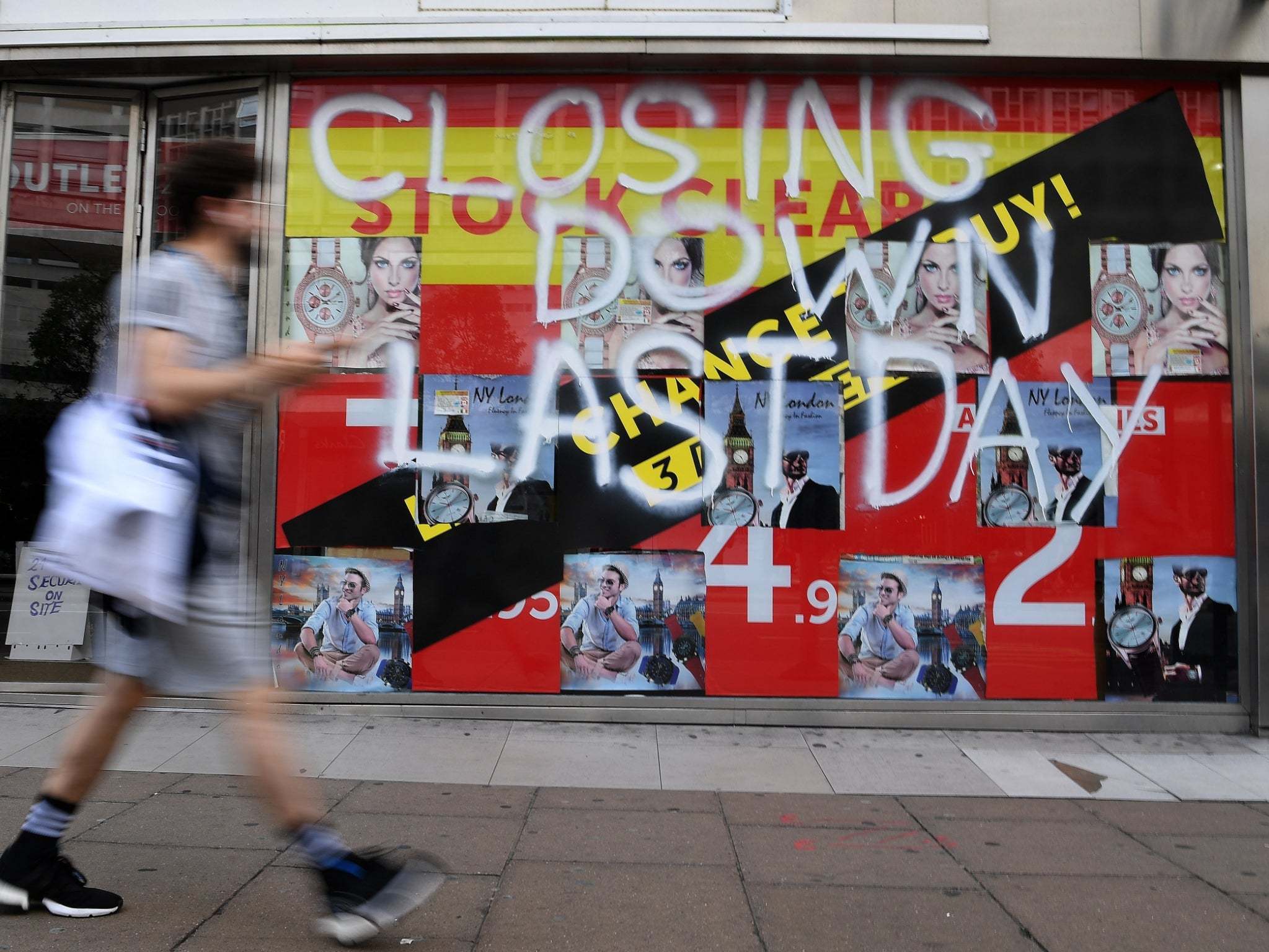Brexit: 40% jump in companies in significant financial distress since referendum, report finds
Retail, property, construction and property firms are among those that have suffered most

The number of UK businesses in significant financial distress has jumped 40 per cent since the Brexit referendum to 489,000, insolvency specialists have found.
Retail, property, construction and property firms are among those that have suffered most, according to Begbies Traynor.
In the past year an additional 22,000 companies have fallen into significant distress, according to Begbies' report.
It also found an 8 per cent rise over twelve months in the number of businesses it considered "critical" and a 28 per cent increase in retailers experiencing in significant distress.
Problems are not restricted to traditional high street retailers, online businesses in the sector also saw a 10 per cent rise in significant distress.
Uncertainty surrounding the realities of trading after Brexit has been cited as a major issue by a number of business groups. While a deal has now been agreed firms are still unclear about what shape Brexit will take and how it will affect them. in
Property and real estate businesses experienced the highest annual increase in distress of any sector covered by the research, in part because they have found it difficult to raise the cash needed to finance their operations.
Julie Palmer, partner at Begbies Traynor, said: “With a considerable increase in the number of businesses suffering significant financial distress in the last three years there is growing frustration among businesses that they cannot plan for the future and the whole economy is lagging as a result.
“Much investment is on hold as businesses have their hands tied by not knowing what the state of play will be post-Brexit and whether the agreements or contracts they currently have in place will still be valid following the expected withdrawal, which is contributing to stifled growth nationwide.”
Subscribe to Independent Premium to bookmark this article
Want to bookmark your favourite articles and stories to read or reference later? Start your Independent Premium subscription today.

Join our commenting forum
Join thought-provoking conversations, follow other Independent readers and see their replies